Lord Indra
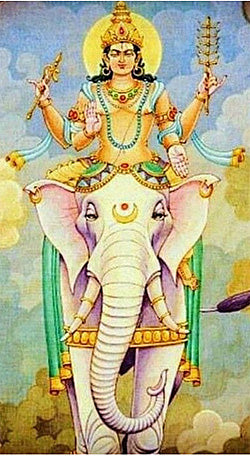 Indra is one of the most important gods of the ancient Indian vedic tradition. He is the king of Devas, and rules the high heavens, the svarga, with his capital at the immortal city of Amaravati. Many contemporary scholars consider Indra a personification of the forces of weather. Indra is the god of thunder and lightning. And of course, the rain, the single most important factor in the life equation of the early fledgling agrarian societies.
Indra is one of the most important gods of the ancient Indian vedic tradition. He is the king of Devas, and rules the high heavens, the svarga, with his capital at the immortal city of Amaravati. Many contemporary scholars consider Indra a personification of the forces of weather. Indra is the god of thunder and lightning. And of course, the rain, the single most important factor in the life equation of the early fledgling agrarian societies.
Origins: The origins of Indra are subject to much debate among the historical scholars. Some say, the name is derived from Inra, a got of Mitanni, an ancient Hittite race from the Asia Minor region. However there is a great resemblance to other gods from all across Asia and Europe - from Nordic to ancient Persian religions - and many scholars believe them to have a common origin.
In the Hindu Puranic texts, Indra is the youngest son of Aditi and Sage Kashyapa, who is in constant conflict with his step brothers from Diti and Danu, the other two wives of Kashyapa. Indra and his brothers, the Adityas (sons of Aditi) are the force of good while Asuras, his step brothers (sons of Diti and Danu) are forces of evil.
Significance and Role: Indra is undoubtedly the most important of the vedic deities. He is hailed the supreme god in over 300 hymns of the Rigveda. In these hymns he wields the Vajra, the thunderbolt, and is the slayer of demon Vritra.
A very interesting aspect of the vedic depiction of Indra is although Indra is consistently mentioned as the supreme deity, the Vedas never say the other gods are subservient to him. This is consistent with the vedic doctrine of the Param Brahmn, the supreme consciousness from which everything else emerges. All the gods are but aspects of the Brahmn, and in a manner of speaking, equivalent.
Indra is the first among the leaders. He was chosen by his Aditya brethren to lead the war against the Asuras - the daityas and the danavas. He is the king of Svarga (heaven) - the third of the upper seven lokas, after Bhuloka (Earth) and Bhuvarloka (Antariksha). He is the bridge between Devas and the Mortals.
The ahutis (oblations) given during their yajnas provide food for the devas. And in return the Devas provide humans with a range of material benefits mostly related to the natural phenomena. Indra is the prime deity responsible for the cycle of seasons that provide conducive conditions for life to flourish on the Bhuloka.
Indra is also a spiritual guide who appears before sages who have performed the appropriate penance and leads them on the path of spiritual ascension.
Benefits of worshipping Indra: Indra is the god of thunder, rain, rivers, and other meteorological forces. Agricultural communities worship him to bring timely rains. He is the powerful king of gods and slayer of the Asura, Vritra, and in this aspect, devotion to him brings human prosperity and happiness. His influence ends the serpent of deceiving forces and life’s delusions, imparting a clarity to the worshipper.
Almost all of the yajnas include giving havis (ahuti in agni) dedicated to Lord Indra. The somayajna - the prakriti of all yajnas - which includes Soma Ahuti dedicated to Indra bestows the doer (or the yajamana) with much grit and sharp intelligence.
Powers of Indra: Indra is a powerful deity in the vedic tradition, being the immortal king of all devas. His dicatats are as binding to the mortals as they are to the devas. He is the god of war and is invoked for success in the battlefield. Indra’s other powers include his influence over the weather of the world, which we have discussed previously.
Indra is often associated with Somarasa, a drink about which the scholars hold contrasting views. Some believe it to be an intoxicating drink like wine, others believe it to be a refreshing brew more akin to a kind of herbal tea.
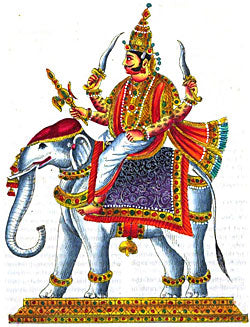 Vehicle and weapon of Indra: Indra’s vehicle is the majestic four-tusked white elephant Airavata. Vajra, the Indra’s weapon, is a very distinctive weapon made of sage Dahichi’s bones that have hardened to become like the strongest rock. Vajra, or Vajrayudha, is a weapon of mass destruction that unleashes the power of thunder and lightning upon his enemies.
Vehicle and weapon of Indra: Indra’s vehicle is the majestic four-tusked white elephant Airavata. Vajra, the Indra’s weapon, is a very distinctive weapon made of sage Dahichi’s bones that have hardened to become like the strongest rock. Vajra, or Vajrayudha, is a weapon of mass destruction that unleashes the power of thunder and lightning upon his enemies.
Lord Indra’s significance waned during the later ages. During the golden period of India, the Gupta dynasty, - the time when the Puranas were codified - the Trimurti, Brahma, Vishnu, and Mahesh became the focal points of reverence while Indra was delegated to the role of a lesser demi-god. This accompanied a marked change in the format of Hinduism itself. The ritual based vedic practices gave way to more accessible bhakti based worship. The rituals yajnas gave way for prayers and faith worship.
In this latter version of events, Indra is often shown as a mischief monger with a paranoid fear of losing his throne. Many kings and sages have borne the brunt of Indra’s jealousy and paranoia in form of insurmountable struggles thrown their way.
Indra is married to Shachi, who is revered with the title of Indrani. Later Puranic texts mention other temporary consorts of Indra and in many of these depictions Indra is represented as a lustful god with questionable morals.
Sons of Indra also find mentions in these texts. Prominent among them being, Vali from Ramayana, and Arjuna from Mahabharata. That both of them were warriors of unsurpassed class is a testament to the martial prowess of their father, the god of war, Lord Indra.

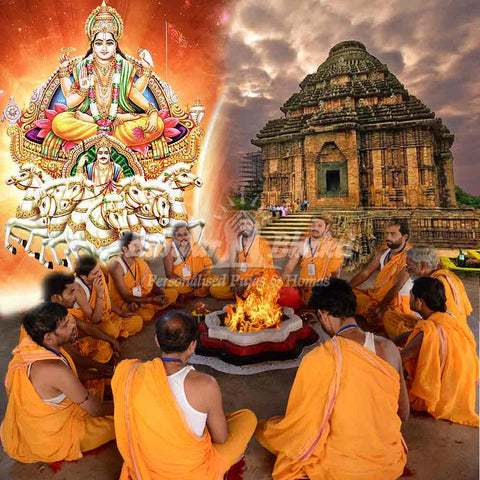
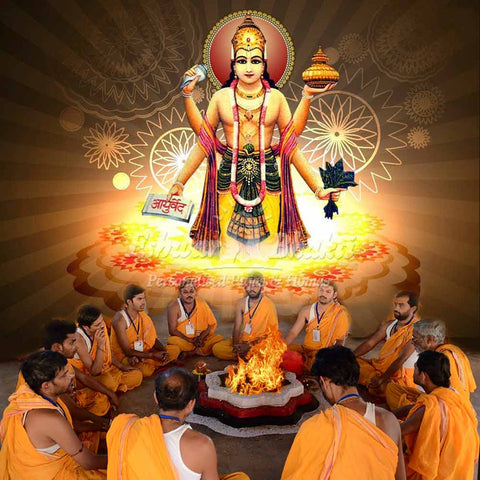
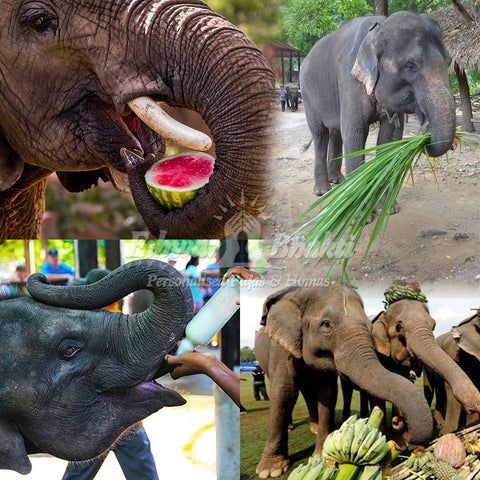
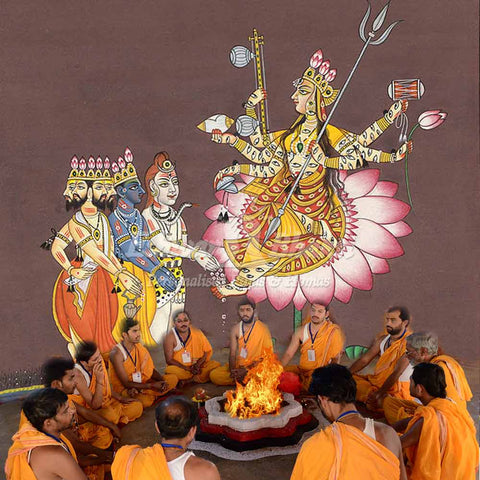
Comments
Thanks for this, it was very truly enlightening to discover, and I will be sharing it, I am also looking into Lakshmi for wealth and abundance.
Best.